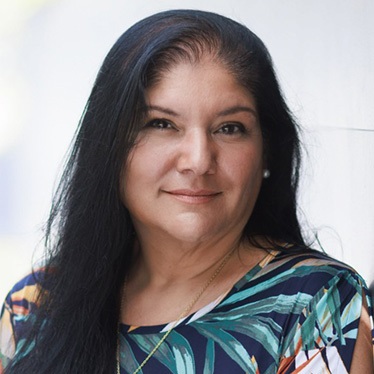Executive Education Grads Leave with New Networks, Big Dreams
June 14, 2022

After completing the yearlong executive master of public administration (E.M.P.A.) program at the Maxwell School, Jahongir Aminjanov will return to Tajikistan with a modern, global perspective on how to improve public policy in the Central Asian country. “The problem in my country is that the laws and regulations are coming from the Soviet Union era,” he said. “That strategy is no longer efficient. If you want to make an impact on the economy and society, we need more modern policies and regulations.”
Aminjanov previously worked as director of the Payment Systems Department at the National Bank of Tajikistan and expects to resume a career in public administration. He is interested in international development, focusing on the development of the payment industry, digital financial services, and financial inclusion to fight poverty. He spoke on behalf of the graduating class at Maxwell's Graduate Convocation on May 13.
He was among about 90 midcareer professionals who completed Executive Education degrees or Certificates of Advanced Study, including 77 in the E.M.P.A. program and 14 in the executive master of international relations (E.M.I.R.) program. About 15 Executive Education students also completed Certificates of Advanced Study in public administration and leadership of international and non-governmental organizations. Graduates represented residential, online and Washington, D.C., degree participants.
“Today as we walk out these doors, we are far more prepared and informed about internal and global issues,” he said at convocation. “We are better decision makers now. We are a new generation of young and enthusiastic leaders who are able to tackle social, economic and humanitarian issues locally and globally.”
Aminjanov acknowledged the challenges of the COVID-19 pandemic and humanitarian crises in the Middle East, Syria, Africa, Afghanistan and Ukraine. The pandemic “connect[s] all people around the world to fight for a common cause,” he said. He mentioned the personal impact of the early 1992-97 civil war in Tajikistan, noting surviving such circumstances “make us dream bigger” and strive to “contribute to promote justice, freedom and human rights.”
He described his Maxwell classmates as “bright and ingenious people who fascinated me every day.” Through discussions and participation in intramural soccer, “we stayed united and constantly supported each other,” he said. “From each other we learned how to stay strong and united. And most importantly we learned how to collaborate.”
Outdated infrastructure, laws and regulations stymie technological and business development in Tajikistan, Aminjanov said. They also isolate people in rural areas and maintain conditions that keep people in poverty. “In rural areas we do not have as many banking branches, so they have to travel long distances for basic banking. You can use a smartphone to connect with any bank and do any kind of transaction,” he said. “But people who are vulnerable or low income cannot participate.”
It’s like “having a Ferrari but no roads,” he said. “For me, the road is public administration. We have so many ideas in developing countries, but without roads, your million-dollar idea will not work. It’s important to fix the public administration issues before encouraging private sector to implement new ideas.”
Aminjanov takes home “a cocktail of the best ideas.” As he resettles into working in Tajikistan, he knows he can draw on his new network of colleagues and friends. His Maxwell experience “created a strong and lifelong bond,” he said, “a bond full of mutual respect, integrity and appreciation.”
Related News
School News

Dec 19, 2024
School News

Dec 11, 2024
School News

Dec 10, 2024
